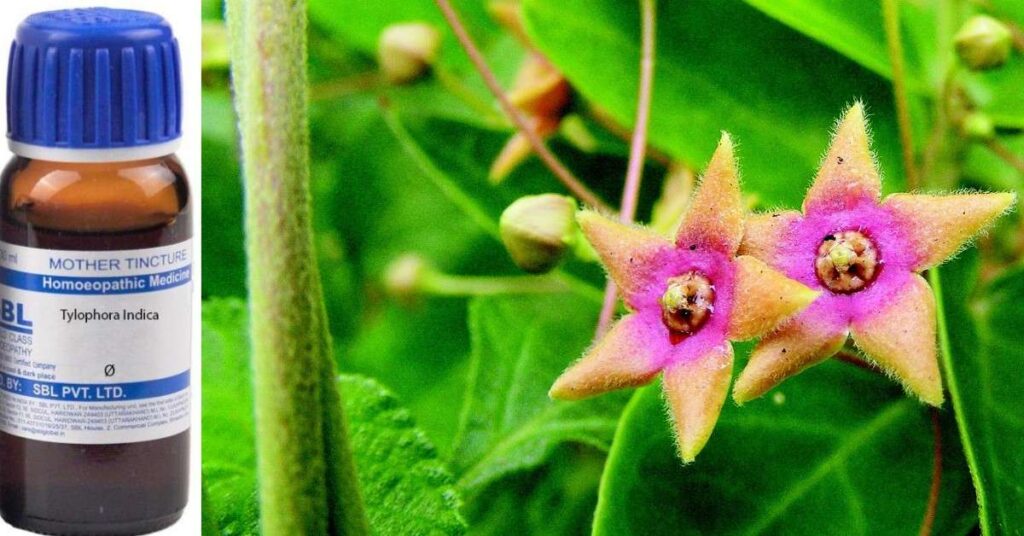Total guide to Ginger: 7 Benefits, Uses, and Applications
“Explore the extensive benefits and uses of ginger in this detailed guide. Learn about ginger’s health benefits, including its role in digestion, immune support, and its effectiveness in treating colds and coughs. The post also covers cultivation techniques, preparation methods, and practical uses for ginger, such as in teas and home remedies.”
Ginger (Zingiber officinale) is not only a popular spice but also a revered medicinal herb with a rich history of use across various cultures. From ancient texts to modern science, ginger’s health benefits and culinary applications have been extensively documented. This comprehensive guide aims to delve deeply into the multifaceted world of ginger, exploring its benefits, traditional uses, preparation methods, and much more.
What is Ginger?
Ginger is a flowering plant whose rhizome, or underground stem, is commonly used for both culinary and medicinal purposes. The plant is known by various names in different cultures, including “ada” (Bengali), “adrak” (Hindi), and “Zanjabil” (Arabic). The ginger plant typically grows to a height of 2-4 feet and produces green, leafy stems. The rhizome, which is the part utilized in cooking and medicine, has a distinct pungent aroma and flavor.
1. Nutritional Profile of Ginger
Ginger’s nutritional profile is rich and diverse, contributing to its broad range of health benefits. Understanding its nutritional components is essential for appreciating its medicinal value.
1.1 Key Nutrients
Vitamins:
- Vitamin B6: Important for brain health, metabolism, and immune function.
- Vitamin C: An antioxidant that supports the immune system and skin health.
Minerals:
- Magnesium: Aids in muscle function, nerve function, and the regulation of blood pressure.
- Potassium: Helps maintain fluid balance, nerve signals, and muscle contractions.
- Manganese: Essential for bone formation, blood clotting, and reducing inflammation.
1.2 Bioactive Compounds
Gingerol:
- The main active compound in ginger, gingerol, is responsible for its spicy flavor and many of its health benefits. It has potent anti-inflammatory and antioxidant properties.
Zingiberene:
- A major component of ginger essential oil, zingiberene contributes to ginger’s distinctive aroma and has been shown to have antimicrobial and anti-inflammatory effects.
Shogaol:
- Produced from gingerol when ginger is dried or cooked, shogaol is known for its potent anti-inflammatory and anticancer properties.
Paradols:
- These compounds also form during the drying process and have been associated with anti-inflammatory effects.
2. Health Benefits of Ginger

Ginger offers numerous health benefits, supported by both historical use and modern scientific research. Here’s a closer look at how ginger contributes to overall well-being:
2.1 Anti-Inflammatory and Antioxidant Properties
Gingerol, the primary active compound in ginger, has been extensively studied for its anti-inflammatory and antioxidant effects. It helps to neutralize free radicals in the body, reducing oxidative stress and inflammation. This can be beneficial in managing chronic conditions such as arthritis, cardiovascular diseases, and certain cancers.
2.2 Digestive Health
Ginger has been used traditionally to support digestive health. Its benefits include:
Relief from Nausea:
- Ginger is well-known for its effectiveness in reducing nausea and vomiting, particularly in cases of motion sickness, morning sickness during pregnancy, and nausea caused by chemotherapy.
Improved Digestion:
- Ginger stimulates gastric motility and enhances the digestive process. It can help alleviate symptoms of indigestion, bloating, and gas.
Reduced Gastric Irritation:
- The anti-inflammatory properties of ginger help soothe the stomach lining, reducing discomfort associated with gastritis and gastric ulcers.
2.3 Immune System Support
Ginger’s immune-boosting properties are attributed to its antimicrobial and antioxidant effects. It helps to strengthen the immune system, making it more effective at fighting off infections and illnesses.
Antimicrobial Action:
- Ginger has natural antimicrobial properties that can help protect against various pathogens, including bacteria and viruses.
Enhanced Immunity:
- Regular consumption of ginger can enhance the body’s ability to respond to infections and reduce the risk of common illnesses such as colds and flu.
2.4 Pain Relief
Ginger has been used for centuries to relieve various types of pain. Its effectiveness in pain management includes:
Menstrual Pain:
- Ginger is known to reduce the severity of menstrual cramps. Its anti-inflammatory properties help ease the discomfort associated with dysmenorrhea.
Muscle Pain:
- Consuming ginger can help reduce muscle soreness and pain, especially after intense physical activity. Studies have shown that ginger can be as effective as over-the-counter pain medications for relieving muscle pain.
Headaches:
- The anti-inflammatory effects of ginger can help alleviate migraines and tension headaches, providing relief from chronic pain.
2.5 Cardiovascular Health
Ginger may offer several benefits for heart health:
Lowering Blood Pressure:
- Ginger helps relax blood vessels and improve circulation, which can contribute to lowering blood pressure levels.
Reducing Cholesterol Levels:
- Regular consumption of ginger can help lower LDL cholesterol and triglycerides, reducing the risk of cardiovascular diseases.
Preventing Blood Clots:
- Ginger acts as a natural anticoagulant, reducing the risk of blood clot formation and improving overall cardiovascular health.
2.6 Weight Management
Ginger can play a role in weight management through various mechanisms:
Boosting Metabolism:
- The thermogenic effect of ginger can increase calorie burning and boost metabolic rate, aiding in weight loss.
Suppressing Appetite:
- Ginger helps regulate appetite and reduce overall calorie intake, making it a useful addition to a weight management plan.
2.7 Cognitive Function
Recent studies suggest that ginger may support cognitive function and mental health:
Improving Memory:
- The antioxidant properties of ginger can help protect brain cells from oxidative stress, potentially improving memory and cognitive function.
Reducing Cognitive Decline:
- Regular consumption of ginger may help delay the onset of age-related cognitive decline and support overall brain health.
3. How to Incorporate Ginger Into Your Diet
Incorporating ginger into your daily diet can be both simple and rewarding. Here are several ways to enjoy ginger:
3.1 Ginger Tea
Ginger tea is a soothing and effective way to enjoy ginger’s benefits. To make ginger tea:
- Ingredients: Fresh ginger slices, water, and optional sweeteners like honey or lemon.
- Preparation: Boil ginger slices in water for 10-15 minutes. Strain and enjoy hot or cold.
3.2 Smoothies
Adding ginger to your smoothies can enhance flavor and nutrition. Simply blend fresh or powdered ginger with fruits, vegetables, and other healthful ingredients.
3.3 Cooking
Ginger can be used in various dishes to enhance flavor and add nutritional value. Common uses include:
- Stir-Fries: Add grated or chopped ginger to stir-fries for a burst of flavor.
- Soups: Incorporate ginger into soups and broths for added warmth and health benefits.
- Marinades: Use ginger in marinades for meats and vegetables to enhance taste and nutritional content.
3.4 Ginger Shots
Ginger shots are a concentrated form of ginger that can provide a quick health boost. To make ginger shots:
- Ingredients: Fresh ginger, lemon juice, honey (optional).
- Preparation: Blend ginger with a small amount of water, strain, and mix with lemon juice and honey if desired. Consume in small amounts for a potent health boost.
3.5 Ginger Paste
Ginger paste can be used in cooking or applied topically. To make ginger paste:
- Ingredients: Fresh ginger, water.
- Preparation: Blend fresh ginger with a small amount of water to form a smooth paste. Use in recipes or apply to affected areas for relief.
4. Preparation and Dosage
Understanding the proper preparation and dosage of ginger is crucial for maximizing its benefits.
4.1 Fresh Ginger
Consumption: Fresh ginger can be consumed raw, grated, or used to make tea. Typical doses range from 1-2 grams per serving.
Preparation: Peel and slice fresh ginger before adding it to dishes or making tea. Grated ginger can be added to smoothies or used as a seasoning.
4.2 Dry Ginger Powder
Dosage: For digestive issues and other conditions, 10-20 grams of dry ginger powder per day is effective.
Preparation: Dry ginger powder can be mixed into drinks, sprinkled on food, or used in cooking. It is also available in capsules or supplements.
4.3 Ginger Juice
Dosage: Ginger juice can be consumed in small amounts, typically 1-2 tablespoons, mixed with honey or lemon for added benefits.
Preparation: Extract juice from fresh ginger using a juicer or blender. Mix with other healthful ingredients as desired.
4.4 Topical Applications
Use: Ginger paste or powder can be applied to affected areas for pain relief or skin conditions.
Preparation: Mix ginger paste with water or oil to create a topical application. Apply to the skin or affected area as needed.
5. Traditional Uses of Ginger
Ginger has a long history of use in traditional medicine across various cultures. Here’s a look at some of its traditional applications:
5.1 Ayurvedic Medicine
In Ayurveda, ginger is considered a potent herb for balancing doshas and treating various ailments:
- Digestive Health: Used to improve digestion and relieve nausea.
- Inflammation: Applied to reduce inflammation and pain in conditions like arthritis.
5.2 Traditional Chinese Medicine (TCM)
In TCM, ginger is used to harmonize the digestive system and treat respiratory conditions:
- Cold and Flu: Used to alleviate symptoms of colds and flu.
- Digestion: Employed to aid digestion and reduce bloating.
5.3 Unani Medicine
In Unani medicine, ginger is valued for its warming properties and digestive benefits:
- Stomach Disorders: Used to treat digestive issues and improve appetite.
- Respiratory Health: Applied to relieve coughs and colds.
6. Potential Side Effects of Ginger and Precautions
While ginger is generally safe for most people, there are some potential side effects and precautions to consider:
6.1 Common Side Effects
- Heartburn: High doses of ginger may cause heartburn or gastrointestinal discomfort.
- Allergic Reactions: Some individuals may experience allergic reactions, such as rash or itching.
6.2 Precautions
- Pregnancy: Pregnant women should consult a healthcare provider before using ginger in large amounts.
- Medications: Ginger may interact with certain medications, such as blood thinners. Consult with a healthcare professional if you are on medication.
- Pre-existing Conditions: Individuals with certain medical conditions, such as gallstones or bleeding disorders, should use ginger with caution.
7. Growing Ginger at Home
Growing ginger at home can be a rewarding experience. Here’s a guide to cultivating ginger:
7.1 Selecting Ginger Rhizomes
- Choice: Choose fresh, plump rhizomes with visible buds or “eyes” for planting.
- Preparation: Soak the rhizomes in water for a few hours before planting.
7.2 Planting Ginger
- Soil: Use well-draining soil rich in organic matter.
- Planting Depth: Plant the rhizomes 1-2 inches deep, with the buds facing up.
- Spacing: Space the rhizomes 8-10 inches apart to allow for growth.
7.3 Care and Maintenance
- Watering: Keep the soil consistently moist but not waterlogged.
- Light: Ginger prefers partial shade to full sunlight.
- Fertilizing: Apply a balanced fertilizer every 6-8 weeks to promote healthy growth.
7.4 Harvesting Ginger
- Timing: Ginger can be harvested after 8-10 months when the leaves start to die back.
- Method: Gently dig up the rhizomes, taking care not to damage them. Allow the harvested rhizomes to dry before storing.
Conclusion
Ginger is a versatile and valuable herb with a wide range of health benefits and culinary uses. From its anti-inflammatory properties to its digestive health benefits, ginger has earned its place as a staple in both traditional medicine and modern diets. By incorporating ginger into your daily routine, you can harness its full potential and enjoy its many benefits. Whether you choose to enjoy it in tea, cooking, or as a supplement, ginger is sure to enhance your well-being and contribute to a healthier lifestyle.
References
- “Ginger: A Review of its Medicinal and Nutritional Properties” – Journal of Herbal Medicine.
- “The Science of Ginger: What Makes Ginger So Effective?” – Nutrition Research Reviews.
- “Traditional Uses of Ginger in Ayurvedic Medicine” – Ayurveda Today.
- “Ginger in Traditional Chinese Medicine” – TCM Journal.
- “Growing Ginger at Home: A Comprehensive Guide” – Home Gardening Magazine.


